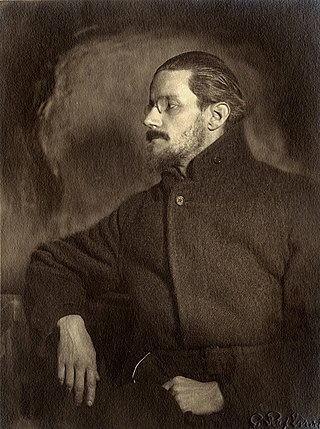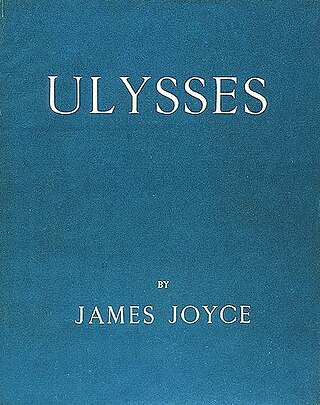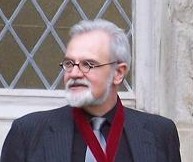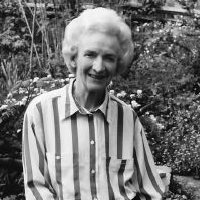Related Research Articles

James Augustine Aloysius Joyce was an Irish novelist, poet, and literary critic. He contributed to the modernist avant-garde movement and is regarded as one of the most influential and important writers of the 20th century. Joyce's novel Ulysses (1922) is a landmark in which the episodes of Homer's Odyssey are paralleled in a variety of literary styles, particularly stream of consciousness. Other well-known works are the short-story collection Dubliners (1914), and the novels A Portrait of the Artist as a Young Man (1916) and Finnegans Wake (1939). His other writings include three books of poetry, a play, letters, and occasional journalism.

Misanthropy is the general hatred, dislike, or distrust of the human species, human behavior, or human nature. A misanthrope or misanthropist is someone who holds such views or feelings. Misanthropy involves a negative evaluative attitude toward humanity that is based on humankind's flaws. Misanthropes hold that these flaws characterize all or at least the greater majority of human beings. They claim that there is no easy way to rectify them short of a complete transformation of the dominant way of life. Various types of misanthropy are distinguished in the academic literature based on what attitude is involved, at whom it is directed, and how it is expressed. Either emotions or theoretical judgments can serve as the foundation of the attitude. It can be directed at all humans without exception or exclude a few idealized people. In this regard, some misanthropes condemn themselves while others consider themselves superior to everyone else. Misanthropy is sometimes associated with a destructive outlook aiming to hurt other people or an attempt to flee society. Other types of misanthropic stances include activism by trying to improve humanity, quietism in the form of resignation, and humor mocking the absurdity of the human condition.

Ulysses is a modernist novel by Irish writer James Joyce. Parts of it were first serialized in the American journal The Little Review from March 1918 to December 1920, and the entire work was published in Paris by Sylvia Beach on 2 February 1922, Joyce's fortieth birthday. It is considered one of the most important works of modernist literature and has been called "a demonstration and summation of the entire movement." According to Declan Kiberd, "Before Joyce, no writer of fiction had so foregrounded the process of thinking."

Jean-François Lyotard was a French philosopher, sociologist, and literary theorist. His interdisciplinary discourse spans such topics as epistemology and communication, the human body, modern art and postmodern art, literature and critical theory, music, film, time and memory, space, the city and landscape, the sublime, and the relation between aesthetics and politics. He is best known for his articulation of postmodernism after the late 1970s and the analysis of the impact of postmodernity on the human condition. Lyotard was a key personality in contemporary continental philosophy and authored 26 books and many articles. He was a director of the International College of Philosophy founded by Jacques Derrida, François Châtelet, Jean-Pierre Faye, and Dominique Lecourt.

Jacques Rancière is a French philosopher, Professor of Philosophy at European Graduate School in Saas-Fee and Emeritus Professor of Philosophy at the University of Paris VIII: Vincennes—Saint-Denis. After co-authoring Reading Capital (1965) with the structuralist Marxist philosopher Louis Althusser and others, and after witnessing the 1968 political uprisings his work turned against Althusserian Marxism, he later came to develop an original body of work focused on aesthetics.
Christopher Charles Norris is a British philosopher and literary critic.

Alain Badiou is a French philosopher, formerly chair of Philosophy at the École normale supérieure (ENS) and founder of the faculty of Philosophy of the Université de Paris VIII with Gilles Deleuze, Michel Foucault and Jean-François Lyotard. Badiou's work is heavily informed by philosophical applications of mathematics, in particular set theory and category theory. Badiou's "Being and Event" project considers the concepts of being, truth, event and the subject defined by a rejection of linguistic relativism seen as typical of postwar French thought. Unlike his peers, Badiou openly believes in the idea of universalism and truth. His work is notable for his widespread applications of various conceptions of indifference. Badiou has been involved in a number of political organisations, and regularly comments on political events. Badiou argues for a return of communism as a political force.

Literary modernism, or modernist literature, originated in the late 19th and early 20th centuries, and is characterized by a self-conscious separation from traditional ways of writing in both poetry and prose fiction writing. Modernism experimented with literary form and expression, as exemplified by Ezra Pound's maxim to "Make it new." This literary movement was driven by a conscious desire to overturn traditional modes of representation and express the new sensibilities of the time. The immense human costs of the First World War saw the prevailing assumptions about society reassessed, and much modernist writing engages with the technological advances and societal changes of modernity moving into the 20th century. In Modernist Literature, Mary Ann Gillies notes that these literary themes share the "centrality of a conscious break with the past", one that "emerges as a complex response across continents and disciplines to a changing world".
Declan Kiberd is an Irish writer and scholar with an interest in modern Irish literature, both in the English and Irish languages, which he often approaches through the lens of postcolonial theory. He is also interested in the academic study of children's literature. He serves on the advisory board of the International Review of Irish Culture and is a professor at the University of Notre Dame and at its campus in Dublin. In recent years and with publications such as After Ireland (2018), Kiberd has become a commentator on contemporary Irish social and political issues, particularly as such issues have been examined by Ireland's writers.
Steven Kevin Connor, FBA is a British literary scholar. Since 2012, he has been the Grace 2 Professor of English in the University of Cambridge and a Fellow of Peterhouse, Cambridge. He was formerly the academic director of the London Consortium and professor of modern literature and theory at Birkbeck, University of London.

Noël Carroll is an American philosopher considered to be one of the leading figures in contemporary philosophy of art. Although Carroll is best known for his work in the philosophy of film, he has also published journalism, works on philosophy of art generally, theory of media, and also philosophy of history. As of 2012, he is a distinguished professor of philosophy at the CUNY Graduate Center.
David Edward Cooper is Emeritus Professor of Philosophy at Durham University.

Robert Harvey is a literary scholar, philosopher, and academic. He is Distinguished Professor Emeritus at the State University of New York at Stony Brook. He lectures in aesthetics, comparative literature, philosophy, and theory. His research and publications are primarily concerned with the interpenetrations of literary and philosophical discourses.
Oliver Feltham is an Australian philosopher and translator working in Paris, France. He is known primarily for his English translations of Alain Badiou, most notably Badiou’s magnum opus Being and Event (2006). Feltham's own writings are drawn from many of his research interests including Marxism, critical theory, and the history of metaphysics. His recent work has also focused on psychoanalysis and Jacques Lacan.

Gabriel Rockhill is a French-American philosopher, writer, cultural critic, and activist. He is Professor of Philosophy at Villanova University, Director of the Critical Theory Workshop/Atelier de Théorie Critique, and former Directeur de programme at the Collège International de Philosophie.
Stephen John Davies is a Distinguished Professor of philosophy at the University of Auckland, New Zealand. He mainly writes on aesthetics, particularly the philosophy of music but also works on political philosophy. He is a past president of the American Society for Aesthetics (2007–2008), and the New Zealand division of the Australasian Association of Philosophy (2001).

Katharine Worth was a British academic, Professor of Drama at Royal Holloway, University of London.
Post-Marxism is a perspective in critical social theory which radically reinterprets Marxism, countering its association with economism, historical determinism, anti-humanism, and class reductionism, whilst remaining committed to the construction of socialism. Most notably, post-Marxists are anti-essentialist, rejecting the primacy of class struggle, and instead focus on building radical democracy. Post-Marxism can be considered a synthesis of post-structuralist frameworks and neo-Marxist analysis, in response to the decline of the New Left after the protests of 1968.

Étienne Balibar is a French philosopher. He has taught at the University of Paris X-Nanterre, at the University of California Irvine and is currently an Anniversary Chair Professor at the Centre for Research in Modern European Philosophy (CRMEP) at Kingston University and a visiting professor at the Department of French and Romance Philology at Columbia University.
Anne Sheppard is professor of ancient philosophy at Royal Holloway, University of London. She studied "Greats",, at St Anne's College, Oxford before completing her DPhil at Oxford on the literary theory of the Neoplatonist philosopher, Proclus. Sheppard's research interests relate to the interaction between philosophy and literature.
References
- 1 2 3 4 Royal Holloway. "Professor Andrew Gibson". Researchers. University of London. Retrieved 20 November 2018.
- 1 2 Bloomsbury.com. "Misanthropy: The Critique of Humanity". Continental Philosophy. Bloomsbury Publishing. Retrieved 20 November 2018.
- ↑ Bloomsbury.com. "Modernity and the Political Fix". Continental Philosophy. Bloomsbury Publishing. Retrieved 20 November 2018.
- ↑ Gibson, Andrew (28 February 2013). The Strong Spirit: History, Politics and Aesthetics in the Writings of James Joyce 1898-1915. Oxford University Press. ISBN 978-0-19-964250-2.